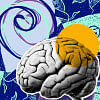Educational leadership: How it fosters individuals for sustainable progress
Educational leadership is the means to provide direction and inspire discrete individuals as well as groups in an educational environment to achieve a common set of values. It focuses more on the students' learning zone and capacities to create interest in each of them so that they feel self-motivated to learn and explore potentialities.
Educational Leadership fosters individuals with care intending to uplift societal issues. Furthermore, educational leadership usually aims to make students learn in a positive place where both the learners and the teachers can grow in their careers. Educational institutional leaders should possess higher standards, philosophy, empathetic humane values and, vision to create a distinct organizational-humane culture, which is why Henry Adams' quote regarding the teachers became so popular where he mentioned that any teachers' impact stays till eternity, none can ensure that their influence will ever stop.
Leaders and teachers must direct focus towards students to aid in developing the right organisational culture, delivering effective teaching with demonstrable evidence, and ensuring teachers' joint work. Students are also at the forefront when it comes to integrating the policies and practices, that is implementing the institution's vision in accordance with the needs of the community. Bedford emphasised that a leader's and teacher's focus in an educational organisation should be on students' curiosity building but not on his or her memorising or learning capacity because curiosity will lead the person to the continuous learning process eventually as long as the person lives.
Bush and Spillane in different eras addressed educational leadership as critical, specifically if it is about the highest management like the Principals' or the Vice Chancellors' empathetic and humanitarian philosophies. To develop and sustain this development process is extremely crucial as well.
Being adaptable is a crucial element of educational leadership as well since educational leaders need to advance with the changing face of teaching and learning. These leaders integrate technology, deal with learning differences and, motivate teachers to become trustworthy and creative leaders in their teams. Effective leadership within educational institutions fosters improvement at the organisational level – professional development becomes a norm and feedback is embraced as a catalyst for change. Active leaders promote equal opportunities for resources and other learning experiences since the most important defining factor for success and contribution is a safe and healthy environment. Leaders perform such a significant and relevant role that it extends beyond the school and into society. They lead the community in shaping the minds of a generation that is prepared to handle the challenges of the future.
Leadership is vital in the education sector as leaders serve as the guiding light of an institution, much like a lighthouse. In the education sector, communication barriers often slow down processes and cause delays. Therefore, leaders must find effective ways to enhance communication.
Another crucial aspect is stakeholder engagement, ensuring all voices are valued and represented. Practising empathy within educational leadership helps create a smoother, fairer environment for everyone involved.
In Bangladesh, a significant challenge is adapting to change. Many positive initiatives are halted because leaders fear the difficulty of implementing new learning processes. However, if learning is the primary focus, efforts should centre on fostering a culture of adaptability. Mutual support for both students and teachers can create a lasting positive impact, underscoring the importance of empathy once again.
The education sector often faces discrimination, and a tendency to form exclusive groups can hinder progress. Leaders should prioritize unity and collaboration for institutional development, keeping in mind that organisational impact is crucial. While personal development is important, it should not overshadow the collective goals of the institution. By focusing on shared growth and support, educational leaders can drive meaningful and lasting change within their organizations.
Dr. Tarnima Warda Andalib is an assistant professor at BRAC University.
Labby Ahsan is a final-year student at BRAC University, outreach manager at OSUN and the President of the Newspaper Olympiad.

 For all latest news, follow The Daily Star's Google News channel.
For all latest news, follow The Daily Star's Google News channel. 








Comments